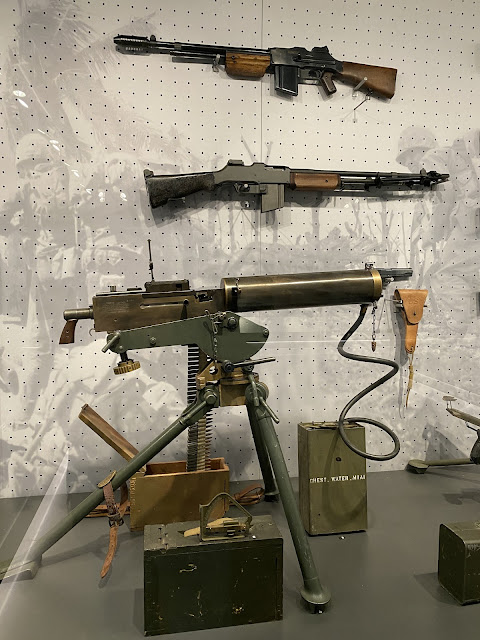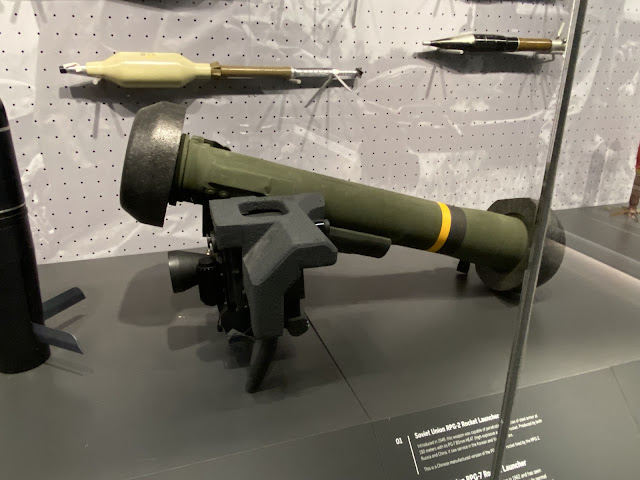How To Use This Site
How To Use This Site
This blog was updated on a daily basis for about two years, with those daily entries ceasing on December 31, 2013. The blog is still active, however, and we hope that people stopping in, who find something lacking, will add to the daily entries.
The blog still receives new posts as well, but now it receives them on items of Wyoming history. That has always been a feature of the blog, but Wyoming's history is rich and there are many items that are not fully covered here, if covered at all. Over time, we hope to remedy that.
You can obtain an entire month's listings by hitting on the appropriate month below, or an individual day by hitting on that calendar date. Use 2013 for the search date, as that's the day regular dates were established and fixed.
We hope you enjoy this site.
Thursday, October 24, 2024
Sunday, September 15, 2024
Monday, September 2, 2024
Help Shape Wyoming's Historic Future
|
|
|
|
Saturday, July 27, 2024
Thursday, July 25, 2024
Friday, June 7, 2024
Did any of your ancestors participate in Operation Overlord?
Did any of your ancestors participate in Operation Overlord?
If they did, let us know, and if you know anything about their stories, let us know that.
One of mine did. My Uncle Terry, who was a Canadian soldier. That's about all of his story on this topic, I know.
Saturday, February 24, 2024
Bloody 287
I've traveled it countless times myself, that stretch of highway between Laramie and Ft. Collins.
It's not a great road.
Thursday, three UW swimmers were killed in a single-vehicle crash on U.S. 287 in northern Colorado. Two more were injured. They were 18, 19, and 21.
In September of 2001, eight members of UW’s cross-country team were killed in a two-vehicle collision south of Laramie on U.S. 287 near Tie Siding.
In September 2010, UW football player Ruben Narcisse, 19, of Miami, Florida, was killed on U.S. 287 six miles south of the Wyoming state line after the driver of the vehicle he was a passenger in fell asleep. That one, I guess, you can't blame on the road.
Seems like something should be done.
Appendix:
Governor Gordon Issues Statement Following Fatal Car Accident Involving University of Wyoming Swimmers
CHEYENNE, Wyo. – Governor Mark Gordon has issued the following statement after learning of a single-vehicle car accident that claimed the lives of three members of the University of Wyoming swim team on Thursday on U.S. 287 in northern Colorado.
“I am heartbroken to learn of the tragic deaths of three University of Wyoming student athletes in a motor vehicle accident on US 287 in Colorado. Jennie and I join the entire university community and all of Wyoming in mourning this loss, and we ask you to keep their families, friends and loved ones close to your hearts during this difficult time.”
Monday, February 19, 2024
Major Gale "Buck" Cleven
In the Apple TV series Masters of the Air, one of the characters is Maj. Gale "Buck" Cleven, who reports himself as being from Casper twice in the first episode.
Who was he, and was he really from Casper?
Clevens was born in Lemmon, South Dakota, on December 27, 1918, just after the end of World War One. His family moved to Casper when he was still a child, although I'm not certain when, as they moved first to Lusk, in 1920. He likely was a 1937 graduate from Natrona County High School, the only high school in Casper at the time (Natrona County had a second one in Midwest). Following graduating from high school, he attended the University of Wyoming while also working on drilling crews as a roughneck.
He did, in fact, move at some point to Casper, where he was employed as a roughneck on drilling crews. He used the money he earned to attend the University of Wyoming and was enrolled by the fall of 1937, presumably right after high school. His name appears in the social pages of The Branding Iron as having had a date attend the men's residence hall October dance. He was a guest of a different young lady at the 1939 Tri Delts Halloween sorority dance. The same year he was apparently in a fraternity, as he's noted as having attended the Phi Delta Theta dance with, yes, another young lady. In February 1939 he went to a fraternity dance with Nova Carter, whom I believe I'm related to by marriage. A year later, February 1940, he took a different gal to the same dance.
He left UW in 1941 to join the Army, intent on being a pilot. The October 21, 1943, edition of the UW Student Newspaper, The Branding Iron, notes him (inaccurately) as being stationed in North Africa and having received the Distinguished Service Cross, which he in fact did receive for piloting his badly stricken plane from Schweinfurt to North Africa, the flight path taken on that raid. This even is depicted in Masters of the Air. The Branding Iron noted that he had attended UW for three years. In June, 1944, the student newspaper reported him a POW. He's noted again for a second decoration in the March 2, 1944, edition, which also notes that he was a Prisoner of War.
As depicted in Masters of the Air, his B-17 was in fact shot down over Germany. He ended up becoming a POW, as reported in the UW paper, at Stalag Luft III for 18 months, after which he escaped and made it to Allied lines. He was put back in the cockpit after the war flying troops back to the United States.
Following the war, he was back at the University of Wyoming. He graduated from UW with a bachelor's in 1946. He apparently reentered the Air Force after that, or was recalled into service, and served in the Korean War, leaving the Air Force around that time.
He was on the Winter Quarter 1954 UW Honor Roll and obtained a Masters Degree, probably in geology, from UW in 1956. Somewhere in here, he obtained a MBA degree from Harvard and an interplanetary physics doctorate from George Washington University.
He married immediately after the war in 1945 to Marjorie Ruth Spencer, who was originally from Lander Wyoming. They had known each other since childhood. She tragically passed away in 1953 while visiting her parents, while due to join Gale at Morton Air Force Base in California. Polio was the cause of her death, and unusually her headstone, in Texas, bears her maiden name. Reportedly, her death threw Cleven into a deep depression. He married again in 1955, to Esther Lee Athey.
His post-war career is hard to follow. He flew again during the Korean War, as noted, which would explain the gap between his bachelors and master’s degrees, and probably his doctorate. He's noted as having served again during the Vietnam War, and also has having held a post at the Pentagon. He was in charge of EDP information at Hughes Aircraft. Given all of that, it's hard to know if an intended career in geology ever materialized, or if his World War Two service ended up essentially dominating the remainder of his career in the form of military service. The interplanetary physics degree would and employment by Hughes would suggest the latter. His highest held rank in the Air Force was Colonel.
Following retirement, he lived in Dickenson, North Dakota, and then later at the Sugarland Retirement Center in Sheridan. He died at age 86 in 2006, and is buried at the Santa Fe National Cemetery in Santa Fe, New Mexico, his marker noting service in three wars.
Monday, November 27, 2023
Entry Updates, 2023
January 2: 2022, Inaugurations.
February 27, 1973. Wounded Knee.
March 29, 1973. Expanded entry on Vietnam, U.S. Price controls.
April 14, 1923. The KKK visits Casper Churches.
June 5, 1923. North Casper to be incorporated into Casper.
June 23, 1923. Somewhere West of Laramie.
June 25, 1923. Harding in Cheyenne and Laramie, KKK in Glenrock.
July 16, 1923. Special legislative session convenes.
July 19, 1923. Special legislative session ends.
July 23, 1923. Flooding in Natrona County.
July 25, 1923. Flooding at Thermopolis.
July 27, 1923. Casper to become Tulsa.
August 2, 1923. Death of Warren G. Harding.
August 29, 1923. Peaks in Teton's scaled.
September 22, 1923. Henning Hotel robbed.
September 27, 1923. Cole Creek railroad disaster updated.
October 12, 1973 President Nixon authorizes an act that will lead to the Arab Oil Embargo.
October 18, 1973. Oil embargo nears.
October 19, 1973. Oil embargo spreads.\
November 11, 1943. Girl Scouts at Heart Mountain.
November 22, 1963. Kennedy's assassination.
Tuesday, November 21, 2023
Monday, October 16, 2023
Towns and Nature: Chugwater, WY: Lost/CB&Q Depot and Three Wood Grai...
Thursday, September 21, 2023
Saturday, August 26, 2023
Battle of the Rosebud Battlefield, Montana.
The battlefield today is nearly untouched.


























.jpg)





























